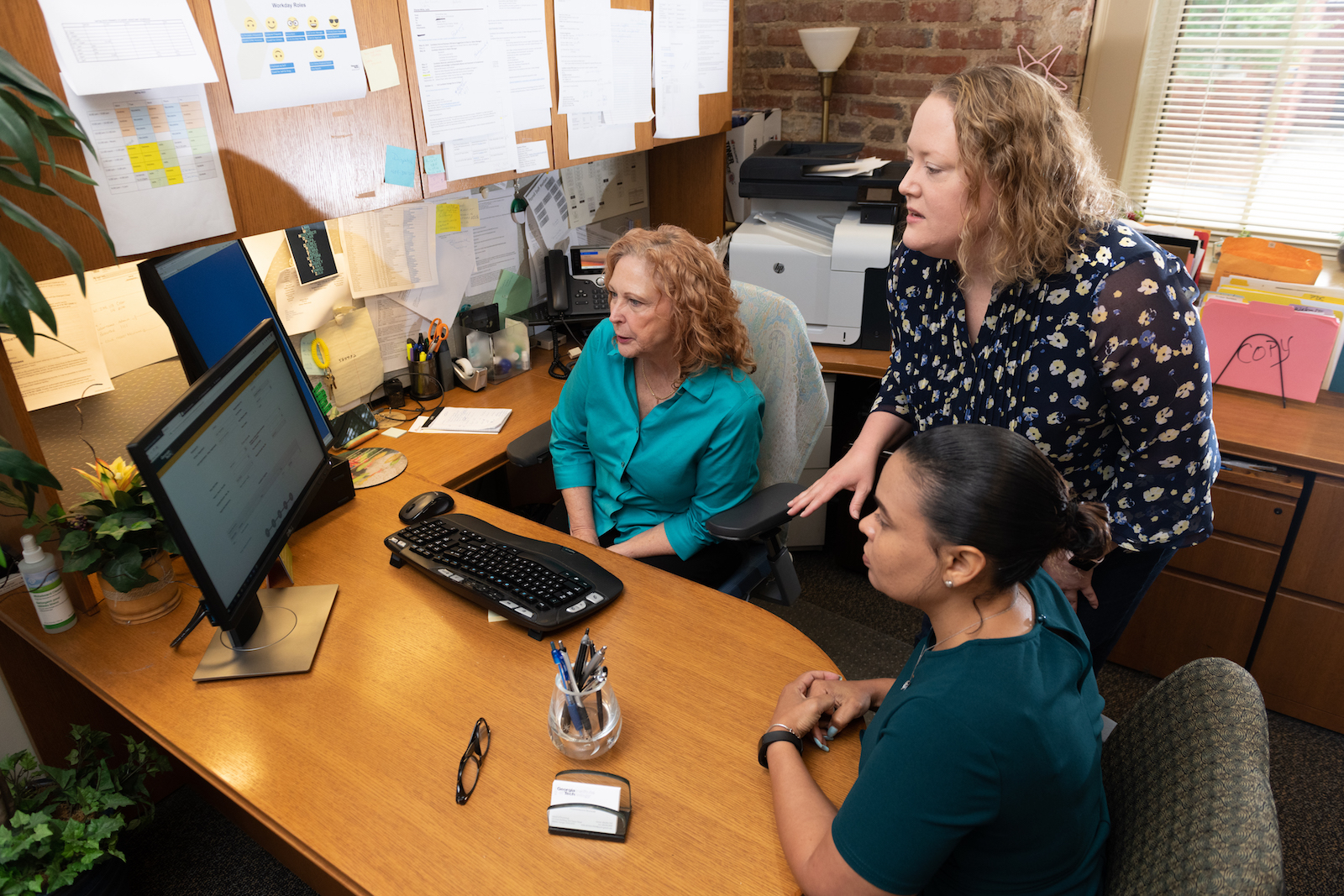EDITOR'S NOTE: This story by Victor Rogers was published originally on Aug. 1, 2019, in the Georgia Tech News Center. The headline has been changed for the College of Sciences' website.
This year Georgia Tech faculty members going through promotion and tenure will have a different experience from their predecessors. For the first time, the process will be tracked from beginning to end in PROMOTE, software that enables faculty to upload their promotion package and monitor its progress through each stage.
Erin Nagle, faculty affairs administrative manager for the College of Sciences, manages the promotion process for tenure-track, non-tenure track, and research faculty. She works closely with the College’s associate dean of Faculty Development and with the Reappointment, Promotion, and Tenure (RPT) administrators in the schools.
“Our RPT administrators are directly involved in uploading the candidate’s documents, and this software offers a visual reminder of what is left to seek from the candidate,” Nagle said. “It’s been a welcome change for me because I can see where in the process each school is, and I can jump in and help because I am seeing the dossier’s creation in real time. I can easily monitor how far along everyone is and how close we are to reaching a school’s submission deadline.”
The implementation of PROMOTE is a significant change from when Autumn Peppers, manager of Faculty Affairs, came to Tech in 2014.
“At the time the colleges were submitting two hard copies and a PDF of each candidate’s dossier,” Peppers said. Each dossier — which includes a summary, background, curriculum vitae, examples of creative contributions, teaching scores, and names of external reviewers — has 50 to 100 pages.
“Any updates would have to be made in three places, so the process wasn’t very efficient,” she added.
Peppers suggested switching from piles of paper to an electronic system. The idea was supported by the provost and the executive vice president for Research. A couple of software companies with promotion and tenure platforms presented their capabilities to a group of Tech faculty, administrative staff, and school chairs.
“None of the systems could do exactly what we needed unless we changed our processes,” said Peppers. “So, we asked Ira Bragg, director of Tech Applications Group, to submit a proposal to build an in-house system that would meet our standards and also allow for the flexibility we needed.”
The Tech Applications Group (TAG) has experience developing custom software such as GT-TRACS, a tool which tracks the hiring of faculty on campus. TAG collaborated with GTRI and with Faculty Affairs on that system.
At the end of 2017 TAG began developing the promotion and tenure software, presenting models along the way to get feedback from administrators to make sure they were building what the campus needed.
“We’re an agile team, and we like working directly with our customers,” Bragg said. TAG worked with Faculty Affairs to form a PROMOTE steering committee, including end-users from all over campus.
“We listened to the customer, gave them some wireframes, and asked if it would meet their needs,” Bragg said. The group also hosted a series of show-and-tell meetings around campus to demonstrate the software’s capabilities and to get input.
Certain modules in PROMOTE have been in use for more than a year. Now that it is in full use, TAG will continue to make changes based on customers’ needs.
So, how are the changes being received?
“The biggest improvement is the transparency,” said Nagle. “It’s great that all of the key players in the promotion process have access to the same documents at the same time.”
Another improvement is standardization. The uploaded documents are locked, so everyone reading and evaluating the documents — from the external evaluators to the Institute’s committee — is viewing the same documents. Significant updates to a candidate’s dossier can be made in an addendum field.
“This first year is a big learning curve for all of us,” said Nagle, “but I can see in future years that PROMOTE will simplify the process, and most administrators will be used to the system by then. Change is always hard, but this change is definitely worth the effort.”
Photo caption
Erin Nagle (standing), faculty affairs administrative manager for the College of Sciences, talks with Leslie Dionne-White (left), administrative manager in the School of Psychology, and Kristie Clark, assistant to the chair in the School of Psychology. The three work closely with faculty members on tracking the promotion and tenure process, including in the new PROMOTE system. (Photo by Alison Carter)
For More Information Contact
Victor Rogers
Institute Communications



